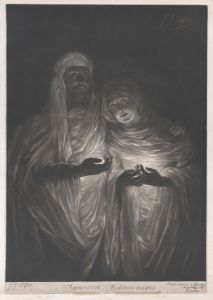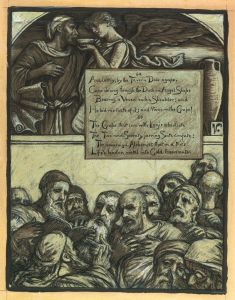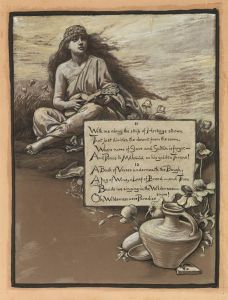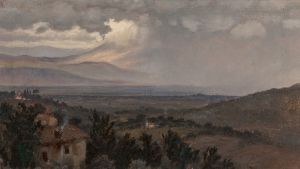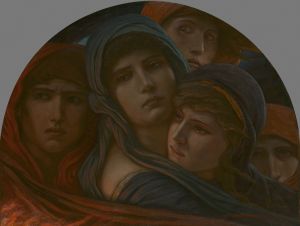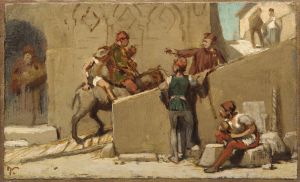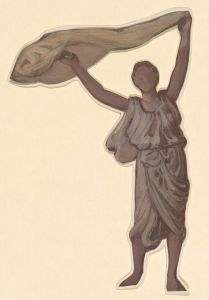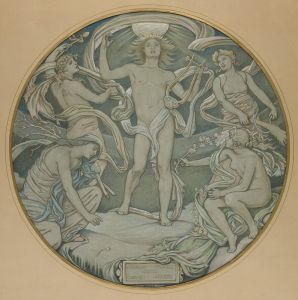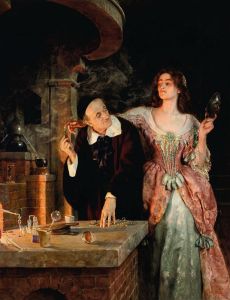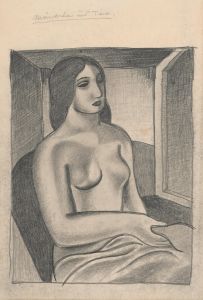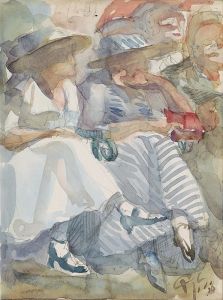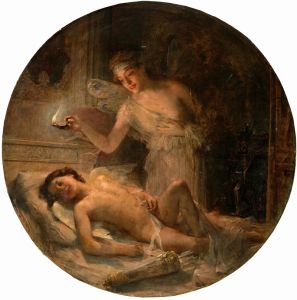
The Invitation
A hand-painted replica of Elihu Vedder’s masterpiece The Invitation, meticulously crafted by professional artists to capture the true essence of the original. Each piece is created with museum-quality canvas and rare mineral pigments, carefully painted by experienced artists with delicate brushstrokes and rich, layered colors to perfectly recreate the texture of the original artwork. Unlike machine-printed reproductions, this hand-painted version brings the painting to life, infused with the artist’s emotions and skill in every stroke. Whether for personal collection or home decoration, it instantly elevates the artistic atmosphere of any space.
Elihu Vedder's painting "The Invitation" is a notable work by the American symbolist artist, who was active during the late 19th and early 20th centuries. Vedder is best known for his mystical and allegorical themes, often drawing inspiration from literature, mythology, and his own philosophical musings. "The Invitation" exemplifies these characteristics, showcasing Vedder's unique style and thematic interests.
Elihu Vedder was born in New York City in 1836 and spent much of his career traveling between the United States and Europe, particularly Italy, where he found inspiration in the classical art and landscapes. His work is often associated with the Symbolist movement, which sought to express ideas and emotions through symbolic imagery and themes, rather than direct representation.
"The Invitation" was created during a period when Vedder was deeply engaged with themes of mysticism and the metaphysical. The painting reflects his interest in the unseen and the spiritual, inviting viewers to contemplate beyond the physical world. Vedder's use of color, light, and form in "The Invitation" is characteristic of his style, which often features dreamlike and otherworldly qualities.
The composition of "The Invitation" is carefully constructed to draw the viewer into its enigmatic scene. Vedder's use of soft, muted colors and delicate brushwork creates an ethereal atmosphere, enhancing the painting's mysterious allure. The figures in the painting are often depicted in contemplative poses, suggesting a narrative that invites interpretation and introspection.
Vedder's work, including "The Invitation," was influenced by his exposure to various artistic and literary movements of his time. He was particularly inspired by the Pre-Raphaelites and their emphasis on detail, symbolism, and medieval themes. Additionally, Vedder's interest in the writings of Dante, as well as his fascination with Eastern philosophies and the occult, informed the symbolic content of his paintings.
Throughout his career, Vedder received recognition for his contributions to the art world, particularly for his illustrations of "The Rubaiyat of Omar Khayyam," which remain some of his most celebrated works. His paintings, including "The Invitation," are housed in various collections and continue to be studied for their rich symbolism and unique artistic vision.
In summary, "The Invitation" by Elihu Vedder is a quintessential example of the artist's symbolist approach, characterized by its mystical themes and evocative imagery. Vedder's ability to blend literary and philosophical influences with his distinctive artistic style has secured his place as a significant figure in American art history. The painting remains a testament to Vedder's skill in creating works that transcend the ordinary and invite viewers to explore the deeper realms of imagination and meaning.





